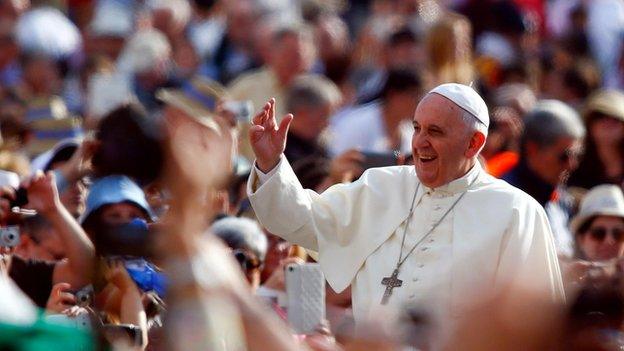Vatican synod: Victory for Pope Francis on gay issues
- Published
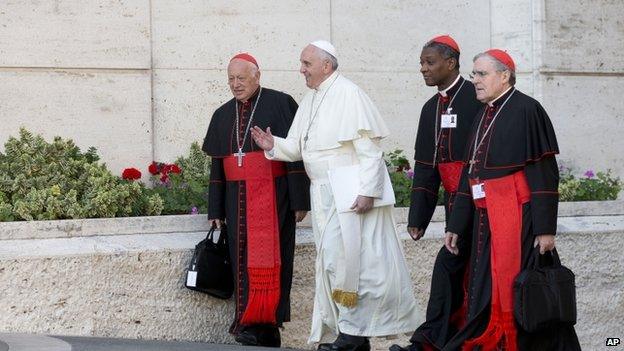
Most of the clerics at the synod support Francis's moderate stance on family matters
Halfway through the Vatican synod on the family, Pope Francis has scored a first quiet victory.
He has convinced many Catholic Church leaders to moderate their formerly strongly critical language about gay unions, and to admit that homosexuals may have "gifts and qualities to offer".
The tone of a preliminary position paper drawn up by about 200 bishops after a week of closed-door discussions shows compassion and understanding not only towards people in single-sex unions, but also to heterosexual couples who live together without marrying and divorced couples who enter a second marriage without bothering to obtain a Church annulment.
The bishops made it clear that there can be no change in basic Catholic teaching on the permanence of the marriage bond, and insist that a valid marriage can only be between a man and a woman.
But Pope Francis's change of emphasis on concentrating upon positive rather than negative aspects of human sexuality seems to have won over many bishops attending the synod.
His predecessor, Pope Benedict, referred to homosexual relationships as "intrinsically disordered" in a Vatican document written in 1986 when Benedict was chief theological adviser to Pope John Paul II.
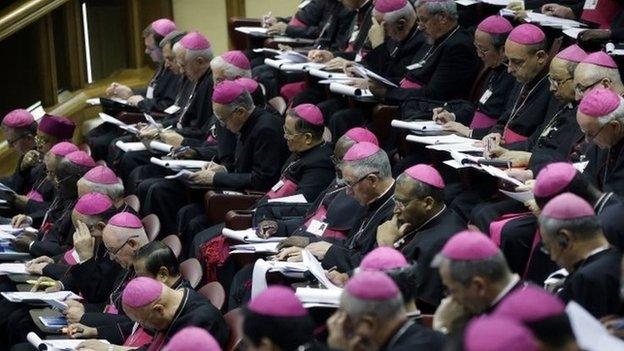
About 200 bishops and cardinals are meeting behind closed doors at the Vatican
Pope Francis on the other hand told journalists last year: "If a person seeks God and has goodwill, then who am I to judge?"
He is the first pontiff ever to have used the word "gay" in public rather than refer to "homosexuals".
Breakthrough or betrayal?
First reactions from Roman Catholic gay-rights groups around the world were favourable to the discussion paper issued in Rome.
The London-based Catholic association Quest described it as a "breakthrough" and the leading American Catholic gay-rights group New Ways Ministry called it a "major step forward".
New Way Ministry praised the document for avoiding the "major gloom and doom" accompanying previous Vatican pronouncements on homosexuality.
Conservative Catholic groups such as Voice Of The Family were strongly critical of the discussion paper and called it "one of the worst official documents drafted in Church history".
Pope Francis himself has listened attentively to the first week of the synod plenary discussions without making a single major intervention.
At the start of the meeting, he told bishops not to be afraid of speaking their minds honestly and openly, and not to be afraid of saying things which might displease him.
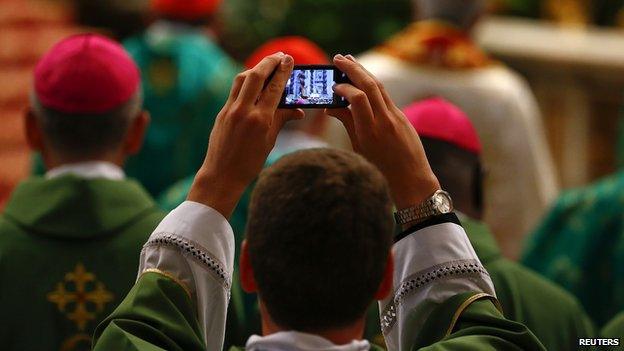
Many Catholics hope that Pope Francis's reformist attitude will help to modernise and revitalise the Church
Brainstorming
There will be no vote at the end of the Vatican meeting on Sunday. Proposals will be drawn up by a committee of cardinals and bishops chosen personally by Pope Francis.
Most of them support his more merciful and compassionate attitude towards couples who find Church teaching on some aspects of family life, such as artificial contraception, hard to accept.
After a year of discussions in the wider Church, the synod will reconvene in Rome in October 2015 to finalise its recommendations on possible changes in Church discipline. The Pope will remain free to accept or reject them.
The synod is in fact a purely advisory body without legislative powers in the Church. Pope Francis has said he would like it to share more fully in Church governance and has already changed some of its debating rules to enable more cut-and-thrust discussion and less formal speech-making.
The meeting has so far been more of a brainstorming session than any previous such meeting.
The Pope's encouragement to his cardinals and bishops to speak their minds freely may have been heeded by participants, in the knowledge that direct quotes of what they said would not end up on the front pages of newspapers around the world.
- Published3 October 2014
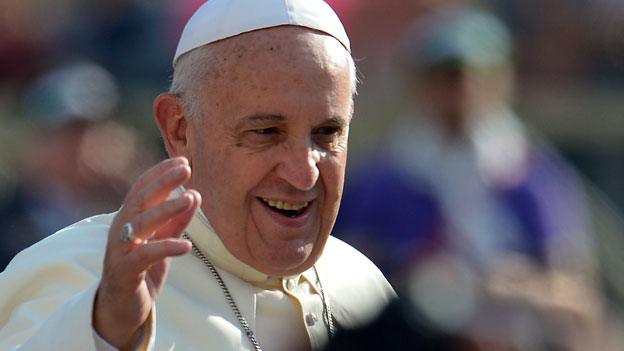
- Published5 October 2014
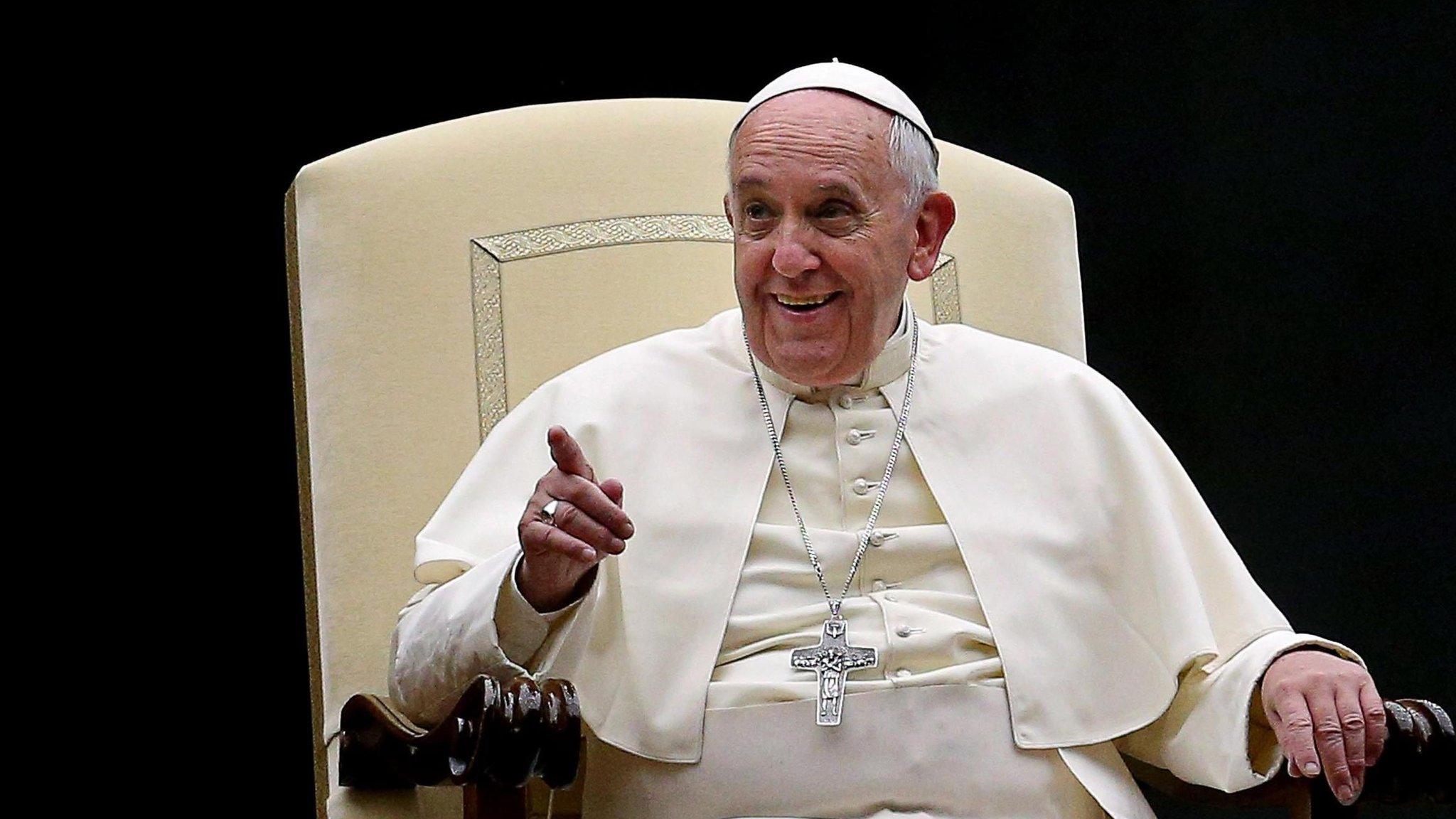
- Published29 July 2013
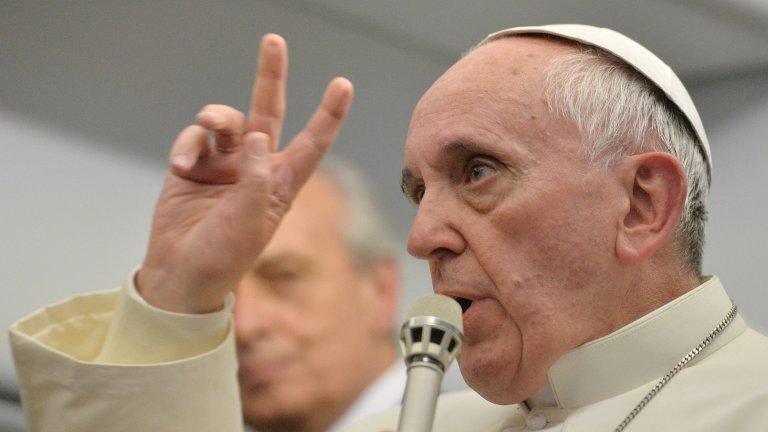
- Published3 October 2014
